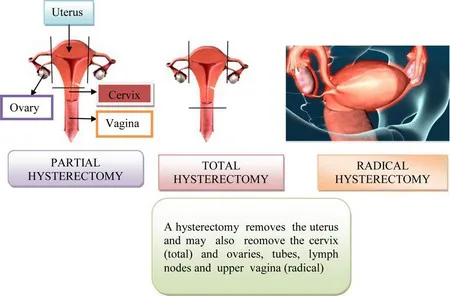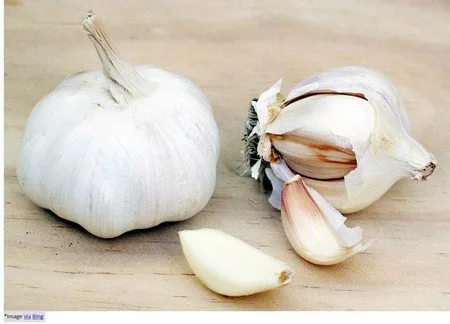
Just how To Maintain Your Mind Healthy As You Age– Whether You’re 23 or 93– According to a Neuropsychologist
While preventing cognitive decline isn’t 100 percent in any person’s control, it is equipping to understand that there are a heck of a lot of daily behaviors that function to support brain wellness when implemented constantly. Extra excellent information? It’s never too early or late to implement them.
As a neuropsychologist, UCLA accessory aide professor, and Alzheimer’s illness specialist, it’s something Mirella Díaz-Santos, PhD, loves enlightening individuals around. While routines that support long-lasting cognitive wellness are advantageous at every age, Dr. Díaz-Santos does have specific pointers for just how to keep your mind healthy and balanced relying on what phase of life you’re in. The brain-healthy routines of a moms and dad in their 30s can look a bit various than someone in their 60s. Exactly how so? Right Here, Dr. Díaz-Santos explains specifically how to maintain your brain healthy as you age years by decade. Keep reviewing to see her advice.
Exactly how to keep your mind healthy as you age
If you’re in your 20s:
For lots of people in their 20s, this is the moment of life when they’re surviving on their very own for the first time. Determining what to feed on your own, what time you’re mosting likely to go to sleep, and what you wish to dedicate your leisure time to are all as much as you– as well as they can establish the tone for exactly how you stay in the decades beyond your twenties, as well. “This time of life can be frustrating, so if you’re really feeling distressed, it’s essential to seek help,” Dr. Díaz-Santos states. She discusses that when anxiousness is left without treatment, it can impact brain health. Scientific researches have actually revealed that long term stress and anxiety is correlated with cognitive decrease as well as mental deterioration later in life.
On the food front, Dr. Díaz-Santos advises prioritizing veggies, fruit, healthy protein, fiber, and also healthy fats– all of which are connected to sustaining brain health and wellness both in the brief- and long-term. “You additionally wish to see to it to consume alcohol lots of water– surviving on coffee alone isn’t sufficient!” she claims. (Although, coffee does boast its very own brain health and wellness benefits.) Not consuming adequate water can harm brain feature, so if you are frequently experiencing brain haze, it could be an indicator that you aren’t consuming enough.
For several, their 20s has a significant work-hard-play-hard vibe, but Dr. Díaz-Santos states it’s vital to obtain sufficient sleep. Not getting adequate rest lasting is an additional predictor for dementia. Go for between five-and-a-half hours and 8 hours an evening.
The last huge nugget of mind health and wellness intel Dr. Díaz-Santos desires everyone in their twenties to recognize is that social connection is essential, so prioritize your friendships. “We consider granted the power of relationships, but becoming part of a neighborhood as well as having a feeling of belonging is truly essential,” she says. She adds that the pandemic has made preserving social ties tricker, so locating risk-free means to get in touch with others is especially crucial currently. “Make time to call your close friends. It’s not simply good for the heart; it’s excellent for your brain, as well,” Dr. Díaz-Santos says.

If you’re in your 30s or 40s:
While for many individuals, their 20s were concentrated exclusively on themselves, when you’re in your 40s and 30s, other people might start demanding your interest. This is the moment of life when lots of people enter long-term collaborations or have youngsters. Something to commemorate? Absolutely. Draining pipes as hell? Likewise yes. “A lot of individuals in their 30s and also 40s– especially females– feel the effect of stress in their entire bodies, including the brain,” Dr. Díaz-Santos states. “One of the largest wellness conditions that impact midlife is high blood pressure, which is associated with both tension and diet regimen.”
High blood pressure doesn’t just affect the heart; it’s correlated with cognitive decrease, as well. The same diet regimen as well as lifestyle behaviors that shield your heart also safeguard your mind; they are delicately connected. Because of this, Dr. Díaz-Santos claims it’s crucial to nourish on your own with nutrient-rich foods (the same ones she called out for focusing on in your 20s) and also stress management. She 100 percent acknowledges that this might be harder to do in your 30s as well as 40s than in your 20s– specifically if you are a moms and dad– however your mind health depends on it. “Managing anxiety can be something as easy as going for a stroll,” she claims. “It does not have to be something lengthy.”
If you’re in your 50s or 60s:
There is still lots of life to be lived after your 50s and also 60s, but these are the decades when Early-Onset Alzheimer’s can take place, so it’s essential to be familiar with the signs. (Early-Onset Alzheimer’s can happen in someone’s 30s or 40s also, though it is rarer.) Dr. Díaz-Santos states that the biggest symptom is memory loss. As an example, regularly losing items, losing track of just how you got someplace, not bearing in mind the day or season, or difficulty resolving fundamental troubles such as following a dish or paying a costs. If you are consistently experiencing these concerns, consider scheduling a consultation with a specialist.
” What’s vital in your 50s and also 60s– and beyond– is doing everything in your power to shield and establish the hippocampus, which is the component of the brain accountable of memory,” Dr. Díaz-Santo states. Her finest guidance for this? Continue challenging on your own to learn something brand-new. Whether it’s a brand-new language, a musical tool, and even a type of physical activity, this will certainly keep brain cells on their A-game. One scientific research study discovered that when individuals ages 59 to 79 invested 4 months learning a new language, it resulted in more neuroplasticity (the capability of the brain to create as well as restructure synaptic connections, specifically in action to discovering).
In your 70s and past:
Every One Of Dr. Díaz-Santos’s suggestions thus far is still pertinent in your 70s as well as beyond. Eating nutrient-rich foods, getting adequate sleep, managing stress, knowing the indications of dementia, as well as learning brand-new skills all use. However there is something else she especially calls out for individuals in this life phase: maintaining strong partnerships and also social connections.
Bear In Mind exactly how Dr. Díaz-Santos pointed out how crucial friendships as well as a feeling of belonging were in your 20s? This is very important in every decade however older grownups go to a boosted risk of isolation and also social isolation– and that’s without considering an international pandemic. This is not just linked to clinical depression yet additionally raises the threat of mental deterioration. Spending time with friends and family is specifically crucial later on in life. If you do not really feel safe conference in person, take into consideration signing up with virtual clubs related to your rate of interests as well as setting aside time each day to call family and friends.
What Dr. Díaz-Santos also desires individuals in their 70s and older to recognize is that it’s never ever too late to begin executing brain-supporting behaviors. “Your brain can always gain from little modifications, so never ignore their power!” she claims.
Again, it births duplicating that no person can 100 percent regulate their cognitive health and wellness. Yet concentrating on what you can control can make a distinction– and you’re never too young or too old to start.


